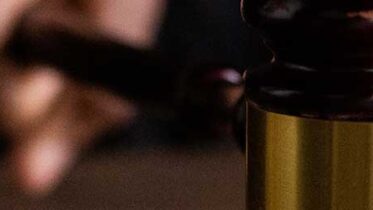Partial cancellation of trademarks due to non-use: new system in Argentina
- 10 April 2023
- New legislation
On June 12, 2023, the partial cancellation of trademark registrations due to non-use will enter into force in Argentina. Trademarks will become vulnerable to cancellation about products or services for which they have not been used in the country within five (5) years before the initiation of the non-use cancellation action.
The concept of partial cancellation represents a substantial change to the current practice in Argentina, where a concept of broad use is applicable. Currently, the use of a trademark on any good or service, even those included in other classes, or as part of a trade name, is sufficient to repel a non-use cancellation action.
Legislative Background
Law 27,444 (published on June 18, 2018) introduced, in Chapter X, various amendments to Law 22,362 on Trademarks and Designations.
Regarding cancellation due to non-use of trademark registrations, the new wording of Article 26 of Law 22,362 states that the National Institute of Industrial Property (INPI) will declare, ex officio or at the request of a third party, and by the regulations to be issued, the cancellation due to non-use of a trademark, even partially, about the products or services for which the trademark has not been used in the country within the five (5) years before the cancellation request. Likewise, its third paragraph adds that the trademark registered and not used in a class, or for certain products or services, will not expire if the same has been used in the marketing of a product or the provision of a service related or similar to those, even if included in other classes.
Concept of use in Argentina
Let us first provide a short overview of the concept of trademark use in Argentina, which is not regulated by local legislation. Consequently, for purposes of establishing if a mark was used in Argentina, our courts have adopted a flexible criterion comprehensive of any act which makes the distinctive sign appear in the local market and be available for purchase. Use must be analyzed on a case-by-case basis. It must be severe and unequivocal to show a clear intention to market a product or render a service under the trademark.
Preparatory acts, such as advertising campaigns, product demos, and sample offerings, as well as other marketing tactics, are admitted as long as they are followed by the launching of the product or service within a reasonable period. Otherwise, they are regarded as isolated acts that do not show a bona fide intention to use the mark. Besides, the use of the mark on the Internet is considered sufficient use as long as the product or service is available for purchase by local consumers or clients.
D-day: June 12, 2023
As of June 12, 2023, a more restricted concept of use will enter into force to defend a trademark registration when challenged for lack of use. In other words, as of the referred date, two different standards will be applicable:
- a broad concept of use for renewing trademark registrations: use on any goods or services, even if different from those covered by the registration, or as a designation of an activity.
- a more restricted concept of use for defending a trademark registration if challenged for lack of use: use on the same goods or services covered by the registration, or related goods or services, or as a designation of an activity related to the aforementioned.
As a result, and to be able to defend a trademark registration, the use of a mark must have taken place on the:
- the sale of a product or the rendering of a service, either covered by the registration or related to those covered by the registration, even if included in other classes; or
- as a designation of an activity related to such goods or services.
The reference to related products or services is crucial, and their existence is determined by the presence of a competitive relationship between them. This competitive relationship between products and services can be established by different standards of comparison. For example, if they are substitute products or services, if they belong to the same industry sector, if there is a combined or complementary use, and if they share their sales channels or targeted consumers, among others. All standards should be considered as a whole, according to the specific circumstances of the case.
There are, of course, some obvious examples concerning related goods or services, such as in the case of books (in class 16) and editorial services (in class 41), or eyeglasses (in class 9) and optical services (in class 44). However, it is still to be seen what the Examiners will consider as related goods or services, in the case of other not-so-obvious relationships.
Essential characteristics of partial cancellation
- Partial cancellation of a trademark due to non-use will proceed concerning those products or services covered by the registration for which the trademark has not been used and provided its use has not taken place either:
- For related products or services.
- As part of the designation of an activity related to the products or services covered by the registration.
- Term: The trademark must have not been used within the five (5) years before the filing of the cancellation action. It should be noted that, in the case of a trademark renewal, the granting of the new registration does not create a new period of five years for the filing of the cancellation action.
- Cancellation at the request of a third party: it will only proceed as long as the claimant invokes damage to a subjective right.
There are some typical scenarios in which a party who requests the total or partial cancellation of trademark registration due to non-use can easily demonstrate its subjective right, such as, when the action is aimed at obtaining the removal of a trademark identical or confusingly similar to an application owned by the claimant, either to overcome an office action or within an opposition proceeding as a counterclaim for cancellation of the trademark cited as the basis of the opposition.
- Cancellation ex officio: it will proceed only if the following conditions are jointly verified:
- The trademark owner has not submitted the mid-term declaration of use;
- It is not a well-known trademark under the Paris Convention and TRIPS; and
- The trademark owner does not have an identical trademark registered in a class related to the mark that is subject to cancellation or, if he or she has one, the mid-term declaration of use of this other mark has not been filed.
In line with section (ii) above, and even though it is not expressly ruled, it is clear that well-known trademarks will not be subject to cancellation due to non-use at the request of a third party, either totally or partially. The notoriety of the trademark will make it impossible for a third party to validly argue the existence of a subjective right to obtain the cancellation of the well-known mark due to non-use.
Administrative proceeding
Unlike what happened before the amendment of the Trademark Law, trademark cancellation proceedings must no longer be filed with the courts. Rather, it is the INPI that must hear the cases, through an administrative proceeding.
- The cancellation proceeding includes the notification of the request for cancellation for a 15-business day period, so that the trademark owner may file a reply and submit the supporting evidence.
- Once the owner has filed a reply, or the term to do so has expired, the National Directorate of Trademarks of the INPI will decide the case.
- The final decision issued by the National Directorate of Trademarks of the INPI may be appealed directly before the Federal Civil and Commercial Court of Appeals, within a 30-business day term as outlined in Article 26 of Law 22,362.
This amendment, which will enter into force soon, represents a substantial change to trademark practice in our country. The Argentine legislator has sought to align with most legislations on cancellation actions currently in force in other countries.
At this stage, it is hard to anticipate how the INPI will decide on partial cancellation requests that are initiated under the new system in those cases in which, although the trademark has been used for some products or services in the same class, genuine doubts exist on the relationship they may have with those products or services for which partial cancellation of the mark has been requested.
Regardless of the above, the entry into force of this new cancellation system is encouraging news, especially for those trademark owners who were previously unable to obtain registration for their marks in our country due to the prior existence of confusingly similar defensive trademarks. As of June 12, 2023, a new opportunity is available. Many of these registrations may become vulnerable to cancellation due to lack of use, either totally or partially.
If you have any questions or need help with IP you can contact our experts by sending a mail to infomarketing@clarkemodet.com. We are ready to help you!










